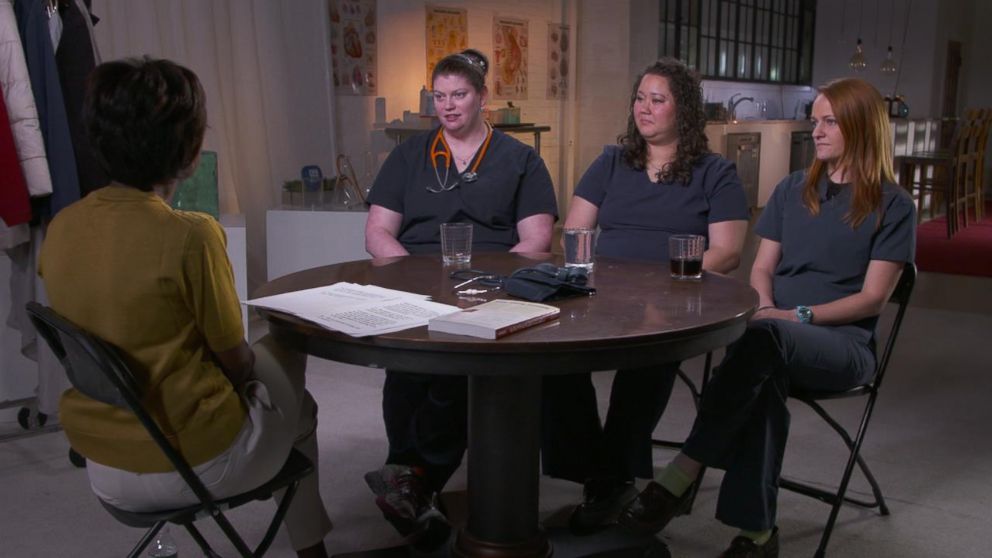Nurses Confess: 4 Insider Secrets That Could Affect You
— -- With the power of life and death sometimes in their very hands, being a nurse can be a high pressure job.
Nurses Lauren, Christi and Ro pulled back the hospital curtain and let ABC News’ “20/20” in on the secrets of their profession.
“Everything you see on TV is completely wrong,” Lauren, an emergency room nurse, told “20/20.” “The E.R. is brutal. We see from the most horrifically, critically ill patients to the patient in the room next-door who’s there for toe pain.”
From how they’ve seen difficult patients dealt with to how they deal with the pressure of the job, they offered some helpful hints to prospective patients on how to “survive” a hospital stay.
Get an inside look at the high-stress, high-stakes profession below.
1. It’s a stressful job, so kindness goes a long way.
“It’s a very emotionally, drastic job to have,” Lauren said.
“Be nice to us, and we will go above and beyond the regular nursing care that you’re going to get."
2. This might be the code word for a rude patient.
You’ve probably heard of hospital emergency codes like “code red” and “code blue,” but it turns out there might be another one you’re less familiar with.
“I’ve heard ‘PITA’ thrown around,” Ro, an E.R. nurse, said. “Pain in the A?”
3. They have ways to lighten the mood when an intoxicated patient comes in.
The nurses confess they’ll take bets on a drunk person’s alcohol level without using the blood test.
“It’s the smell. It’s if they try to spit at you … how accurate are they?” Lauren said.
“How close are they getting to you when they’re telling you they’re not drunk,” Ro said.
4. Nurses have been caught stealing patients’ medication.
“The painkiller abuse among nurses is really a silent epidemic,” author Alexandra Robbins said she learned when interviewing nurses for her book, “The Nurses: A Year of Secrets, Drama, and Miracles with the Heroes of the Hospital.”
The nurses say they are supposed to “waste” medication by discarding leftovers in front of another nurse. But keeping it instead is relatively easy, according to Lauren, who said she’s accidentally taken home medications.
“And by the time you think about it, you're emptying your pockets at home,” Lauren said. “I always bring it back the next day. However, addiction is a common problem among hospital staff.”
Last January, Ryan Slater had an emergency appendectomy when he had his pain medication swapped with saline solution by a nurse at the hospital. The hospital said this was an isolated incident and that it was taking many steps to eliminate the risk of it happening again. They said the nurse was no longer employed at the hospital. Her nursing license is now revoked.
Ro even recalls catching a nurse red-handed diverting medication at one of the previous hospitals where she worked.
“She was putting the waste in her soda can and going and medicating the patient,” Ro said.
"There are ways that nurses can get help without losing their license and without putting patients at risk," Robbins said. "It's really too quiet of an issue, and people need to talk about it more."
“For the past 13 years, nurses have held the top spot as the public’s most honest and ethical profession in America in an annual gallop poll,” the American Nurses Association said in a statement to “20/20.”




